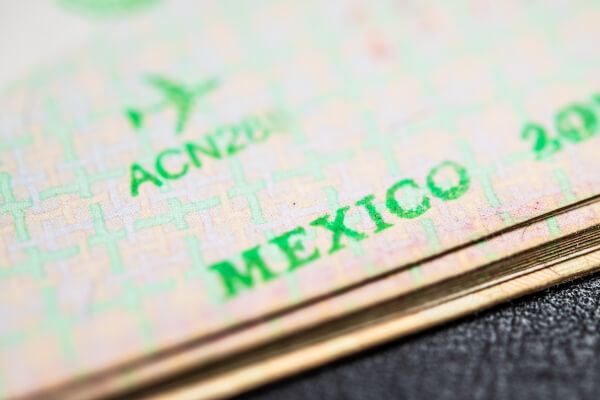How to Hire Independent Contractors in Mexico | Legal Guide & Best Practices
Learn how to hire and pay independent contractors in Mexico. This article also includes an FAQ and best practices about working with contractors in Mexico.

Brazil, the economic powerhouse of Latin America, presents a promising landscape for foreign investors. While Brazil ranks 138th globally in ease of doing business, out of almost 200 countries, the potential rewards can make it worthwhile.1
As a foreign investor, you can set up your business in Brazil and choose from various entity types. Let’s look at the complexities of establishing a company in Brazil, and the steps you’ll need to take.
| Navigating the complexities of doing business across borders just got easier. Check out the Wise Business account - Easy to set up, easy to use, built for international business needs. |
|---|
Brazil, Latin America's largest economy, presents a compelling landscape for international entrepreneurs and independent contractors. As a member of key trade blocs like MERCOSUR and BRICS, it opens doors to diverse commercial opportunities, making it an attractive destination to establish a business.2
The very first step is to figure out whether you can start a Brazilian business, and if so, the steps and legal requirements you’ll need to adhere to.
Yes, you can start a business in Brazil as a foreigner. However, Brazilian regulations can be intricate, and you’ll need to understand the requirements and procedures to ensure a smooth and successful venture. The entire process can be done in a few steps.
Here's a simplified roadmap of the steps for establishing your business in Brazil:
Don’t forget to stay updated with and adhere to Brazil's tax and regulatory requirements.
The cost of setting up a company in Brazil as a foreigner can range from $3,000 to upwards of $10,000. This includes the cost of translation, consularization, and registering capital. If the owners handle the process themselves, the cost may be less than $500.
Note your costs for starting a Brazilian business vary widely, depending on the chosen legal structure, location, and industry requirements. The typical costs to expect include:
While Brazil, as Latin America's largest economy, offers enticing opportunities for foreign investors, it's important to understand the associated costs before setting up a company.
The incorporation process in Brazil typically takes 60 to 90 days, excluding the time required to open a business bank account. The complexity arises from having to work with various authorities.
You can consider streamlining the process by engaging local experts well-versed in Brazilian business law. They can assist in selecting the appropriate entity, preparing accurate documentation, navigating the registration procedures and ensuring compliance with tax and regulatory obligations.
However, with careful planning and the right guidance, you can streamline the process and get your business up and running sooner.

The key legal requirements for starting a Brazilian business include picking a legal entity and registering your business with the proper authorities. For example, there are only two key legal entities you’ll choose from—a limited liability company (LLC) or corporation—but regardless of the chosen entity you choose you’ll also need:
Note that Brazil's corporate tax rate stands at 34%, and businesses must adhere to specific financial reporting requirements.6
For foreign entrepreneurs, selecting the right legal structure is a crucial first step. Here are the two most common options:
Limited liability company (LTDA)
Corporation (SA)
Regardless of the chosen structure, foreign investors are restricted from doing business in certain industries like media, transportation, healthcare, and security services.
Beyond that, the best legal structure for your business will depend on factors like the size and scope of your business, the number of business owners and liability concerns.
Navigating the regulatory landscape is a critical step in establishing your business in Brazil. The specific business licenses and permits required vary significantly depending on your business activities and chosen location within Brazil.
Regardless of your business type or location, certain registrations are mandatory for all businesses operating in Brazil. Key business registration documents you’ll need include:
Meanwhile, some business licenses and permits you might need depending on your industry:
Certain industries, such as financial institutions, healthcare providers, and transportation companies, often have additional licensing requirements and regulations. These industry-specific licenses may involve stricter compliance standards and specialized procedures.
Beginning April 10, 2025, citizens of the US, Canada, and Australia will need a visitor visa (VIVIS) to enter Brazil for business. To obtain a VIVIS visa, you will generally need to provide the following documents:5
The specific requirements and application process may vary depending on your nationality and the Brazilian consulate or embassy in your country.
Opening a business bank account in Brazil as a foreigner is a key step to establishing your company. Here are some key tips for opening a business account in Brazil:
The items you need to open a business account in Brazil will vary by bank and business type. Contact the bank directly for their specific requirements.
Navigating the financial landscape of starting a business in Brazil as a foreigner can be a complex process. Wise Business is designed for global business needs, offering a seamless and efficient way to manage your finances across borders.
With a US Wise account, you can send USD to BRL. If you are a local tax resident in Brazil, you can add BRL to your account and send money.
Wise is not a bank, but a Money Services Business (MSB) provider and a smart alternative to banks. The Wise Business account is designed with international business in mind, and makes it easy to send, hold, and manage business funds in 40+ currencies. You can get major currency account details for a one-off fee to receive overseas payments like a local. You can also send money to 140+ countries.
Here's how Wise Business can help global businesses:
Wise Business understands the unique financial needs of foreign entrepreneurs venturing into the Brazilian market—making it an ideal solution for growing your business in Brazil.
| Read the guide on how to open a Wise Business account |
|---|
Here are some useful resources for further reading before embarking on your new business in Brazil:
All sources checked August 2024.
*Please see terms of use and product availability for your region or visit Wise fees and pricing for the most up to date pricing and fee information.
This publication is provided for general information purposes and does not constitute legal, tax or other professional advice from Wise Payments Limited or its subsidiaries and its affiliates, and it is not intended as a substitute for obtaining advice from a financial advisor or any other professional.
We make no representations, warranties or guarantees, whether expressed or implied, that the content in the publication is accurate, complete or up to date.

Learn how to hire and pay independent contractors in Mexico. This article also includes an FAQ and best practices about working with contractors in Mexico.

Learn how to navigate the overseas worker recruitment. Discover legal requirements, sourcing strategies, visa compliance, and tips for international hiring.

Paying overseas vendors is common, but the hidden costs of B2B cross-border payments aren’t. Learn how to simplify international business payments today.

B2B payment processing doesn’t have to be hard. Learn how growing businesses can simplify cross-border transactions, streamline invoicing and get paid faster.

Discover strategies to enhance B2B payment security, reduce fraud risk, and protect cash flow using secure digital payment methods and automated workflows.

B2B payment automation helps small businesses save time and reduce costs. Read about how automation replaces manual tasks and boosts accuracy and cash flow.